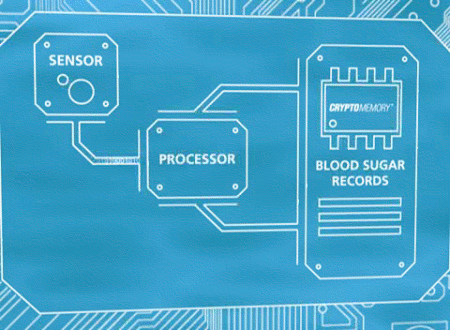Linux device design gains crypto memory
Jun 25, 2007 — by LinuxDevices Staff — from the LinuxDevices Archive — 7 views![]() A hardware reference design vendor specializing in ultra-thin ARM-based CPU modules plans to add support for encrypted memory. Unicon says enhancing its designs with Atmel's “CrytoMemory” will provide a secure place within the system to store sensitive data, such as digital certificates or… encryption keys.
A hardware reference design vendor specializing in ultra-thin ARM-based CPU modules plans to add support for encrypted memory. Unicon says enhancing its designs with Atmel's “CrytoMemory” will provide a secure place within the system to store sensitive data, such as digital certificates or… encryption keys.
Unicom is best-known for ultra-thin CPU modules that utilize “chip-on-film” technology to connect to displays and daughterboards. The company began shipping its flagship MKit product (photo) in April, supplying a Linux 2.6.13 kernel and basic filesystem with the design.
Atmel's CrytoMemory (AT88sCxxxxC) devices are EEPROMs (electronically erasable programmable read-only memory) that attach to host processors via a serial interface clocked up to 1.5MHz. Available in capacities from 1Kbit to 256Kbits, the parts are typically used in smart cards, as well as biometric, medical, and media playback devices.

Atmel CryptoMemory typical application
VP of Marketing Dmitri Ivanov stated, “This feature makes Unicon's mobile platform appealing [for] DRM handling software, remote banking solutions, security autnmation products, [and] medical devices.”
The CryptoMemory can also be used to protect third-party licensed software modules, Unicom said.
Availability
Unicon said it will begin “pilot production” of a design incorporating CrytoMemory in July.
This article was originally published on LinuxDevices.com and has been donated to the open source community by QuinStreet Inc. Please visit LinuxToday.com for up-to-date news and articles about Linux and open source.